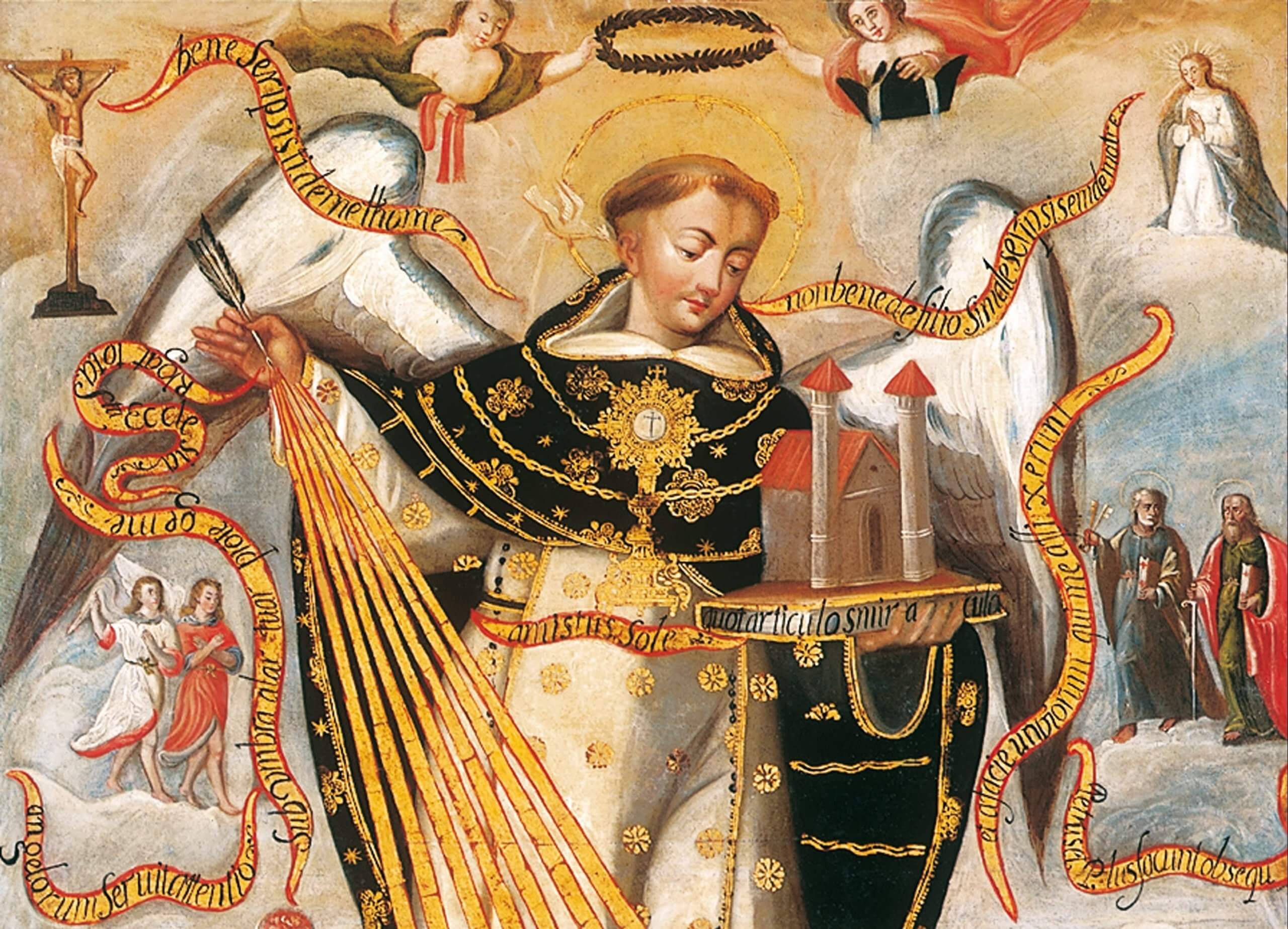Sharing God’s nature: the powerful pro-life message of the Eucharist
Bishop John Sherrington shares with Anita Boniface the powerful pro-life message of the Eucharist. In Advent and Christmas, the Church’s liturgical year presents us again with a wonderful opportunity to reflect on the gift of the Incarnation, the gift of the Eucharist in the Mass and the gift of life. During Advent, we prepare with The post Sharing God’s nature: the powerful pro-life message of the Eucharist appeared first on Catholic Herald.

Bishop John Sherrington shares with Anita Boniface the powerful pro-life message of the Eucharist.
In Advent and Christmas, the Church’s liturgical year presents us again with a wonderful opportunity to reflect on the gift of the Incarnation, the gift of the Eucharist in the Mass and the gift of life.
During Advent, we prepare with Mary for the birth of her Son. Our Blessed Lady is chosen from the beginning of time to play her part in God’s plan of salvation. She is graced from conception to be worthy of this calling.
Her title, Immaculate Conception, names the power of God’s grace. Through the power of the Holy Spirit, she conceives; the Word becomes flesh and enters into our lives. Our Blessed Lady, whose title is Theotokos, or God-bearer, shows forth the dignity of being a woman and a mother.
Our Lady suffers as a refugee mother on the Flight into Egypt. She and St Joseph experience the anxiety of parents when Jesus is lost before he is found preaching in the Temple. She is present at her Son’s crucifixion and stands at the foot of the Cross. She reveals the promise of being taken to heaven at the end of our lives through her Assumption. She is the first disciple and a model for following Christ.
Christmas teaches us about the dignity of unborn life in the womb, both in Our Lady’s pregnancy and the birth of Jesus Christ. Since Christ has taken the form of human flesh, every child in the womb is given great dignity which is to be reverenced and protected from the moment of conception.
Every child, whether disabled or healthy, is reverenced and recognised to be precious in itself, imbued with dignity and sanctity by the birth of the Incarnate God.
Bethlehem, in Hebrew, means “house of bread”. In the house of bread, the Christ-Child is born and placed in the manger which is the feeding trough for the animals. Jesus will teach us that he is “the living bread that came down from heaven. If anyone eats of this bread, he will live for ever.” (Jn 6:51).
Christ, the Bread of Life, invites us to adore and worship him, just as Mary and Joseph and the shepherds did in the stable. We will gaze upon His Holy Face with love, and adore Him as the Bread of Life. “Jesus is my one love,” said St Thérèse of Lisieux,
At the crib, we deepen our Eucharistic heart when we contemplate the Christ Child who is the Bread of Life, and recognise the gift of every person, from the womb until their death. In dependence and humility, we adore and pray. Christmas and the Eucharist are pro-life!
Meditation on the mystery of the Incarnation and the mystery of the Eucharist deepens our grasp of the mystery of life in the womb and the life of every person, whether poor, living with disability, aged and fragile, or young and vibrant.
The beautiful reading from Pope St Leo the Great, to be found online in the Office of Readings for Christmas Day, speaks of this:
“Christian, remember your dignity, and now that you share in God’s own nature, do not return by sin to your former base condition. Bear in mind who is your head and of whose body you are a member. Do not forget that you have been rescued from the power of darkness and brought into the light of God’s kingdom. Through the sacrament of Baptism you have become a temple of the Holy Spirit.”
We continue our adoration of Christ in the adoration of the Blessed Sacrament, Christ who dwells among us. Adoration leads us to action. Pope Benedict XVI explained this very well in Sacramentum Caritatis: “It is precisely this personal encounter with the Lord that then strengthens the social mission contained in the Eucharist, which seeks to break down not only the walls that separate the Lord and ourselves, but also and especially the walls that separate us from one another.” (SC, 66)
As we grow in Christ, we also grow in love for our neighbour and overcome the fears that prevent us from relating. Blessed Carlo Acutis exemplified this in his short but holy life. He loved prayer before the Eucharist; he developed a website of Eucharistic miracles and he reached out to those who were poor.
His mother recalls that “with his savings, he bought sleeping bags for homeless people and in the evening he brought them hot drinks”. Love in action where he saw the face of the suffering Christ: may we follow his example. To be pro-life is to allow the love of the Eucharist to overflow into the love of our neighbour.
Anita Boniface is a Catholic journalist. The Rt Revd John Sherrington is Bishop for Life Issues in England and Wales.
The post Sharing God’s nature: the powerful pro-life message of the Eucharist appeared first on Catholic Herald.














